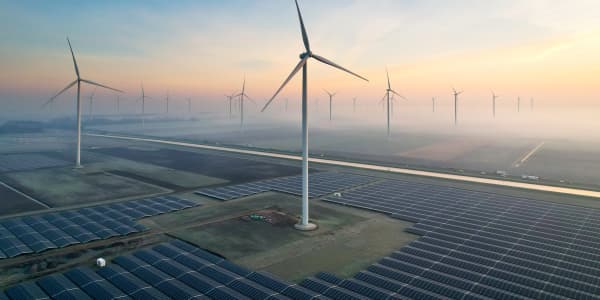The Hyundai Motor Group will invest 41 trillion South Korean won ($35 billion) in "future mobility technologies" by the year 2025.
Among other things, the company said Tuesday it would launch 23 battery electric vehicles over the next few years.
The Seoul-headquartered conglomerate's shift toward electric mobility is in line with other automobile manufacturers. Volvo Cars wants 50% of the cars it sells to be fully electric by 2025, while the Volkswagen Group plans to launch "almost 70 new electric models" over the next 10 years.
In the self-driving sector, the Hyundai Motor Group wants to introduce SAE Level 3 autonomous vehicles on highways by the year 2021. By 2024 it wants to have introduced, in phases, Level 4 vehicles to city roads.
Five "levels" of driving automation have been defined by SAE International, a global association of engineers and technical experts.
At Levels 3 and 4, a vehicle can drive itself under limited conditions and "will not operate unless all required conditions are met." At Level 5, a vehicle's automated driving features can drive it under all conditions.
In September, the Hyundai Motor Group and Aptiv announced they would establish a $4 billion autonomous driving joint venture in which the firms will each have a 50% stake.
The companies said the joint venture, which will have headquarters in Boston, would focus on advancing the "design, development and commercialization of SAE Level 4 and 5 autonomous technologies."
The Hyundai Motor Group employees more than 280,000 people in a range of sectors, from automobiles and steel to construction.
In July, the Hyundai Motor Company reported sales revenue of 50.95 trillion South Korean won for the first half of 2019, a year-over-year increase of 8.1%. Operating profit grew 26%, hitting 2.06 trillion South Korean won.
An autonomous evolution?
Hyundai is one of several major players making moves in the autonomous driving sector.
At the start of this week, Renault announced a public trial of an autonomous, electric and shared on-demand car service in France. In September, Daimler Trucks and technology firm Torc Robotics started to test autonomous trucks on public roads in the U.S.
Just how long will it take for autonomous cars to become a common sight on public roads is an issue open to debate.
In a statement sent to CNBC via email Alain Dunoyer, head of autonomous research and consulting at SBD Automotive, said many major obstacles still remained.
"These include a safe human machine interface, legislation changes, and the perception and understanding how an automated vehicle should behave in relation to other road users," he added. "We are looking at an evolution that will likely take decades."




